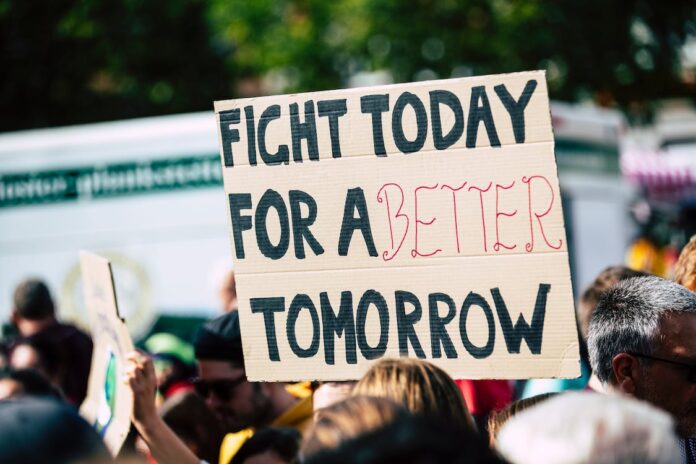
By
This story is part of Word In Black’s “Reparations Now” series exploring the fight for our modern-day 40 acres and a mule, and why Black Americans deserve justice.
Imagine a world where Black folks experience liberation. We receive reparations for centuries of racial harms. Compensation goes beyond making amends for the atrocities committed during slavery. And the environmental problems affecting Black people get addressed head-on.
If the promised 40 acres and a mule had been given, that could be our current reality.
But Black folks were never given land as promised and have been at a disadvantage ever since.
As of 2018, 20.8% of Black folks in the United States lived in poverty. In 2021, 29% of Black households in the United States made less than $25,000, and in 2019, about 40% of homeless people were Black.
On top of that, Black people face environmental hazards that threaten our lives every day.
So with reparations becoming an increasingly hot topic, how does paying money to Black folks forced — thanks to restrictive covenants and other discriminatory housing practices — to live close to polluting factories create climate justice?
And can reparations help Black folks — who are more likely to live in an area with little to no tree coverage — stop sweating day after day in urban heat islands?
What Reparations Means for Climate Justice
Dr. Cheryl Grills, a clinical psychologist and tenured professor at Loyola Marymount University in Los Angeles, was appointed to the California Reparations Task Force by Governor Gavin Newsom in 2021 and the National African American Reparations Commission in 2022. She says decreasing exposure to heat in Black communities is essential to reparations.
“We are suggesting an increase in green space access and recreation opportunities in Black communities,” Grills tells Word In Black. “I do a lot of community research to support community organizing around green space access and recreation opportunities nationally, as well as in California.”
“We live in places that are much harsher living conditions, so we need green space for physical sustainability, sustainability of life, for enjoyment, and pleasure,” Andre Perry, a senior fellow at the Brookings Institute, says.
There’s also the reality that a staggering 78% of Black Americans live within 30 miles of coal-fired power plants, exposing our friends and family — and ourselves — to life-threatening fine particle pollution. Black folks, along with low-income individuals, face the highest mortality risks from such exposure. Furthermore, Black Americans are three times as likely as our white counterparts to die from air pollution.
“The damage that much of the industrial age was powered by was the exploitation of Black people,” he explains. “The labor that fueled any of the industries that polluted the world was because of the exploitation of Black people.”
Addressing Racial and Environmental Harm
Perry is one of the authors of “The Case for Climate Reparations in the United States.” The report thoroughly examines environmental racism and how “communities of color are overexposed to these climate-related harms despite bearing little responsibility for them.”
He tells Word In Black he believes in “a reparative stance.”
“If we can get a reparative practice, or if we are to repair those most urgent, it will help everyone at the same time.”
He also believes in creating “adaptations” that focus on communities most impacted by the climate crisis.
That means climate justice-centered reparations “would be housing subsidies and new approaches to rebuilding communities overall. It would be green jobs in local communities. It would be a new curriculum in schools around these issues.”
The California Reparations Task Force plans to submit a final report to the legislature and governor on June 29 in Sacramento. They have made over 115 recommendations to address wrongdoings against Black folks.
It won’t include “just the harms from the period of enslavement,” Grills says.
“The harms have continued,” she says. “We laid out exactly what that through line is from the past to the present in terms of racial harms against Black people in the State of California and nationally.”
We laid out exactly what that through line is from the past to the present in terms of racial harms.
CHERYL GRILLS, CALIFORNIA REPARATIONS TASK FORCE
Given that those racial harms involve exposure to environmental hazards, Black activists, community members, and researchers hope that reparations will consist of removing garbage incinerators, power plants, and oil refineries from predominantly Black areas.
In the eyes of climate reparations experts like Perry and Grills, money is not enough. Black folks want clean air and water. We want trees and green spaces to shade us from heat. We deserve to live in communities that aren’t killing us.
But Grills warns racial prejudice may yet stop that from happening.
“Racism is alive and well,” she says. “This country was founded on a foundation of discrimination.”


